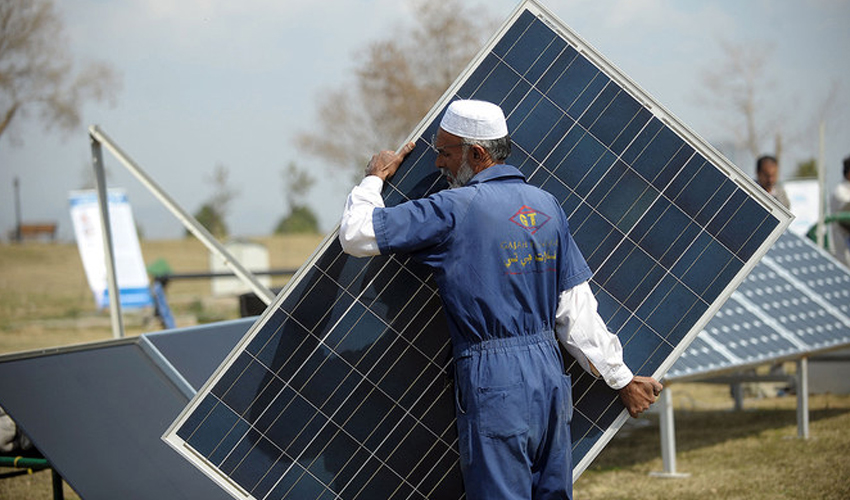Pakistan has cemented its position as the sixth-largest solar market worldwide, driven by an increasing shift toward renewable energy sources, particularly solar power.
This growth, highlighted in a recent report by the World Economic Forum (WEF), signals the country’s potential to lead in solar energy adoption amid a global transition to sustainable power.
According to experts, the rapid expansion of solar energy in Pakistan can be attributed to its favourable geographical conditions, which provide more than nine hours of daily sunlight across most regions. The World Bank’s estimates further underscore the country's enormous potential for solar energy, suggesting that dedicating just 0.071% of its land to solar photovoltaic (PV) systems could fulfill the entire national electricity demand.
However, despite these promising figures, Pakistan currently meets only 5.4% of its energy demand from renewable sources, including solar, wind, and biomass. The rest of the country's power generation is still largely dominated by fossil fuels (63%) and hydropower (25%), according to the National Electric Power Regulatory Authority (NEPRA).
The WEF report points out that Pakistan’s remarkable growth in solar energy is the result of a combination of factors, including favorable external conditions. One key influence has been the overproduction of solar panels in China, which has led to a significant drop in the cost of solar equipment. As a result, Pakistan has become the third-largest recipient of Chinese solar exports, with a large portion of the country’s solar infrastructure relying on affordable imports.
In addition to global economic trends, domestic challenges have also played a pivotal role in accelerating the adoption of solar power. Pakistan's energy sector has long been plagued by inefficiencies, including unreliable state-owned energy providers, inconsistent power supply, and regulatory obstacles. These challenges have intensified the nation’s ongoing energy crisis, driving both the public and private sectors to seek alternative solutions.
The transition to solar energy is not only seen as a solution to Pakistan’s energy woes but also as a step towards reducing dependence on imported fuels and addressing environmental concerns. With solar power now emerging as a key player in the country’s energy mix, experts believe that this shift offers valuable lessons for other developing nations looking to harness renewable energy resources.



























